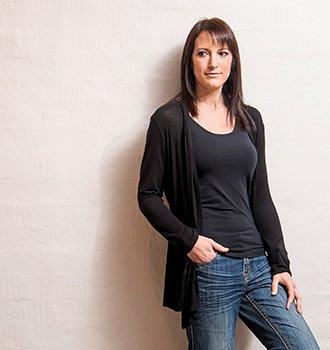Latest News Archive
Please select Category, Year, and then Month to display items
23 September 2020
|
Story Nitha Ramnath
|
Photo Supplied
 UFS students will be performing at the virtual ICDF on 24 September 2020.
UFS students will be performing at the virtual ICDF on 24 September 2020.
On 24 September 2020, South Africa will be celebrating Heritage Day. For the 25th anniversary of this celebration, South Africans are encouraged to celebrate their culture and the diversity of their beliefs and traditions in the wider context of a country that belongs to all its people. Dr Chitja Twala, Vice-Dean: Faculty of the Humanities at the UFS, says: “The importance of the day is that we must celebrate who we are and learn from each other.” The University of the Free
State (UFS) has a long tradition of commemorating Heritage Day and the ideas underpinning it. One way in which the UFS celebrates and recognises the tapestry of diverse cultures represented on its campuses is through its International Cultural Diversity
Festival hosted by the Office for International Affairs. The purpose of the event is to highlight on Heritage Day that international cultural diversity is a central tenet of the UFS community.
Pursuant to the tremendous challenges caused by the COVID-19 pandemic globally, the International Cultural Diversity Festival will this year be celebrated in a virtual format. Even during this uncertain time, it is important to find time to celebrate
our uniqueness and to appreciate one another’s heritage and culture in the spirit of our humanity.
Date: 24 September 2020
Time: 10:00
No registration is required!
For the 2020 Heritage Month celebrations, let us share elements about ourselves that make us proud of who we are! The diverse contributions to the 2020 virtual International Cultural Diversity Festival activities will highlight the university’s commitment towards creating a diverse, challenging intellectual environment. As a research-led university, the UFS strives to provide an environment in which new ideas are incubated and debated, contributing to its transformation process and African unity.
For more information contact Bulelwa Moikwatlhai on MaloB@ufs.ac.za
#Women'sMonth: Lack of HIV education still affects children
2017-08-17

Dr Nickie Goedhals, Senior Lecturer and Pathologist
in Medical Microbiology and Virology at the UFS.
Photo: Sonia Small
“Despite all the advances in the management and prevention of HIV, children still become infected every day, often due to lack of education and access to health care.” This is according to Dr Nickie Goedhals, Senior Lecturer and Pathologist in Medical Microbiology and Virology at the University of the Free State (UFS).
Study published in UK medical Journal
A case study she was part of and published in the UK medical journal The Lancet in 2012, demonstrates the transmission of HIV to a child through surrogate breastfeeding. This study is one of the many highlights in the young researcher’s career. She received her first rating from the National Research Foundation (NRF) in 2017 for the work she has done in Medical Virology over the past eight years.
According to the above-mentioned study, only about 1% of infants in South Africa are being breastfed by a surrogate. However, results from a study in the Free State showed that shared breastfeeding by a non-biological caregiver was the most important factor associated with HIV infection in discordant mother-child pairs. Therefore, continued education about the risk of HIV transmission is needed.
Dr Goedhals is also continuing with research on HIV by looking at HIV drug resistance. She is in the process of starting new projects focusing on HIV infection and drug resistance in infants.
PSP helped with NRF-rating
She says, although her NRF Y2-rating is the starting point of a research career, it shows that she is heading in the right direction, and it “gives access to research funds through the NRF for future projects.” Other important research she conducted was on Crimean-Congo haemorrhagic fever – the study for her PhD.
The Prestige Scholars Programme (PSP) at the UFS is the reason that she applied for the rating. “With all the service delivery, teaching, and administrative responsibilities of academic medicine, it is easy to lose focus. The PSP has really helped to create a focused and stimulating environment for research.” According to her, the PSP also provides access to a network of peers and senior staff at the UFS, as well as exposure to national and international experts.